
When it comes to leading members of the New Hollywood movement, Brian De Palma might be the one who has received the most criticism. It might be hard to believe right now, but his thrillers like “Dressed to Kill” and “Body Double” didn’t get a warm reception at their initial release. Not even his crime films like “Scarface” were much appreciated by critics at the time, but over the years, more and more people admitted De Palma’s genius. He has made many kinds of films from comedies to crime dramas, but he’s perhaps best known for Hitchcockian thrillers, where he pays homage to his master but also creates his own tone, atmosphere, and style.
De Palma’s films have been an influence on many different directors from Tarantino to Baumbach to even Terrence Malick. If you’re a fan of his work, check out all of his thrillers. Don’t mind the critics – “Femme Fatale,” “Passion,” and “Raising Cain” are all worth watching. And then if you want to see something similar, maybe in tone, maybe in atmosphere or just the plot, perhaps these 10 films would satisfy you as well. Here we go:
10. Mute Witness (1995)
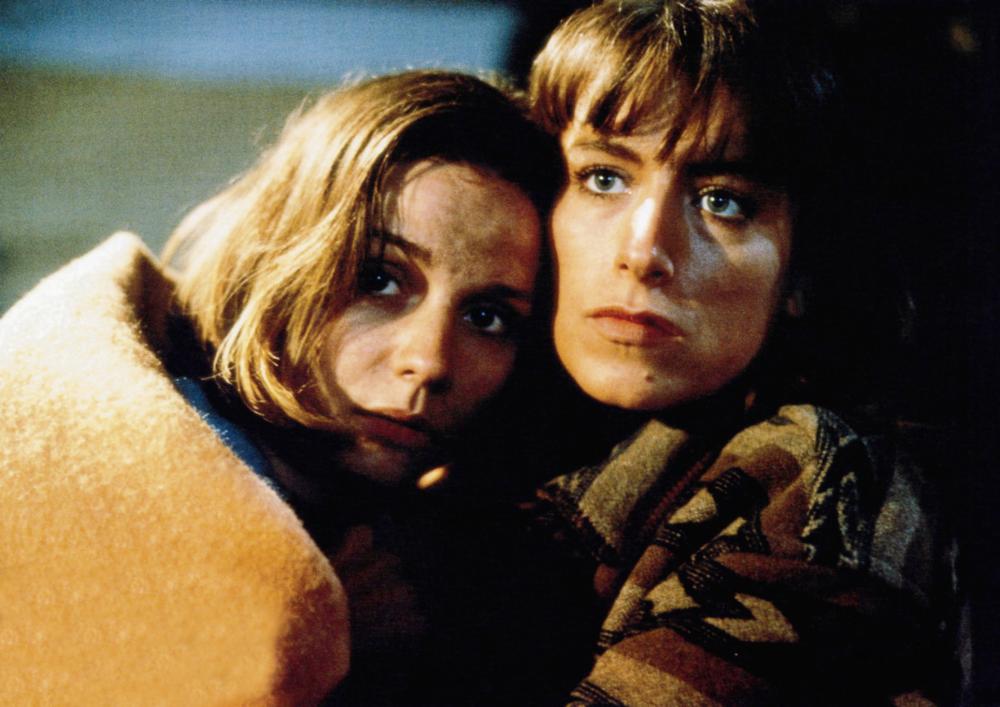
The European co-production “Mute Witness” is directed by Anthony Waller. In her review for the film, New York Times veteran critic Janet Maslin writes: “It includes nudity, violence and a lot less gore than it would have if it had been directed by Brian De Palma, whose influence strongly shapes Mr. Waller’s style.”
Indeed, De Palma’s style is very evident in this crafty, delicious thriller with some surprising touches of humor. The plot follows makeup artist Billy, a mute young woman who works on a slasher film in Moscow. Now before going into further plot details, it has to be said that Moscow is a very inspired choice for this kind of film. Especially the whole post-Soviet atmosphere of early ‘90s unstable Russia gives a very intriguing and engaging background for movies. Anyway, our girl is then accidentally locked in the studio. Then she witnesses another film crew shooting a cheap pornographic movie. First, she finds it amusing, but then the sex gets violent and sadistic. When the girls get murdered, Billy flees and the snuff film crew follows her.
So obviously there’s something for “8mm” and “Tesis” fans as well, but what makes “Mute Witness” stand apart is its hero. Sure, having a mute witness is not something that has never done before – from Audrey Hepburn’s “Wait Until Dark” to more recent Flanagan’s “Hush” – but it’s hard to pull this off effectively. Waller does a good job with the material; he creates an interesting leading character, knows where to put humor, and gives us a story full of thrills, twists and turns.
9. Bedroom Window (1987)
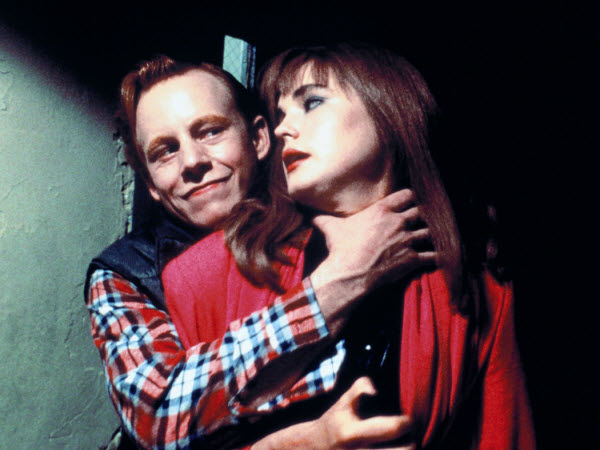
Terry Lambert has an affair with Sylvia, his boss’s wife. After a party, Sylvia visits Terry in his apartment and at night, looking out of the bedroom window, she witnesses the young girl Denise being attacked by an obvious rapist on the street. When he sees that Sylvia has been watching him, he lets go of his victim and escapes. Concerned that the affair could be exposed, Sylvia and Terry decide that Sylvia will not reveal herself as a witness and instead Terry will simply testify to the police that he had observed the crime. Terry then gives the police a description of the perpetrator, although he has not seen the perpetrator himself. When the perpetrator is arrested and charged, Terry has to testify in court and of course the story goes on.
Isabelle Huppert stars in this, so there’s enough reason to watch the film. But “Bedroom Window” is a lot of things that De Palma fans would like: Curtis Hanson takes a lot of influence from “Rear Window” (just like De Palma did in “Body Double”) but after the main plot story keeps going to unexpected places. Not all twists are necessarily convincing, but you don’t watch these types of movies for that anyway. The atmosphere, that sense of suspense, the beautiful shots, and just having those delicious reveals keeps you engaged in the story. The film is based on the novel “The Witnesses” by Anne Holden.
8. Grand Piano (2013)
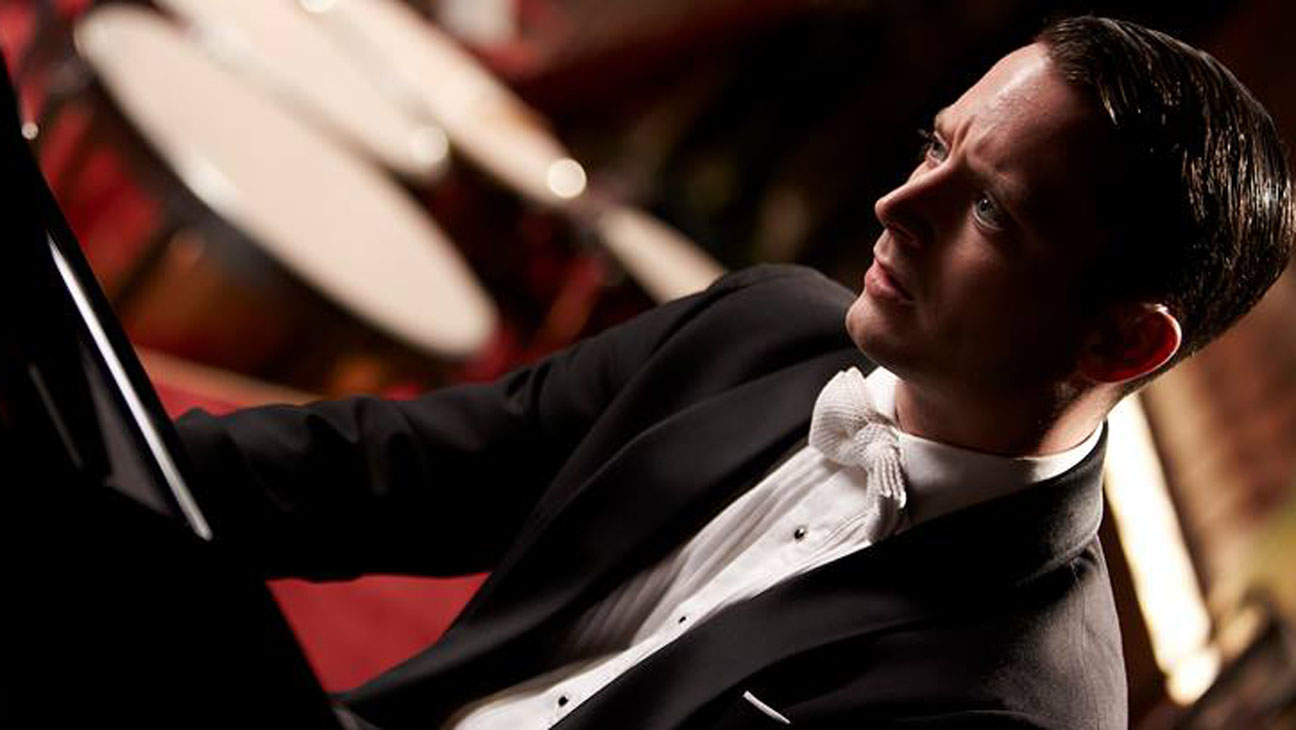
A simple concept, but it mostly works. It’s probably also inspired by Joel Schumacher’s “Phone Booth.” The Damian Chazelle-scripted “Grand Piano” follows a pianist with stage fright (Elijah Wood) who endures a performance under the eyes of a mysterious sniper (John Cusack) who will shoot him if a wrong note is played. The plot indeed sounds like “Phone Booth” but now imagine if it’s a classical music-themed film and De Palma directed it instead of Schumacher.
Director Eugenio Mira is pretty good at creating the suspense within the same setting, and of course, when you make a movie like this, you need a pair of great performances. Wood and Cusack are not exactly Farrell and Sutherland in this film, but they’re still great. Since the film is not too long and the pacing is good, you probably won’t be bored.
Now “Grand Piano” is not necessarily anything deep, and its idea is not really convincing (neither are some of De Palma’s twists) but then again, as mentioned in the previous film, you’re not here for the idea. You’re about to witness how a rich and suspenseful execution can make a questionable idea work. That’s the magic of cinema. Chazelle’s name is mostly associated with music-themed films as he made a career out of them, but when you watch “Whiplash,” it’s not hard to see he has a sense of thriller in himself and it’s evident from his script here as well.
7. Unforgettable (1996)
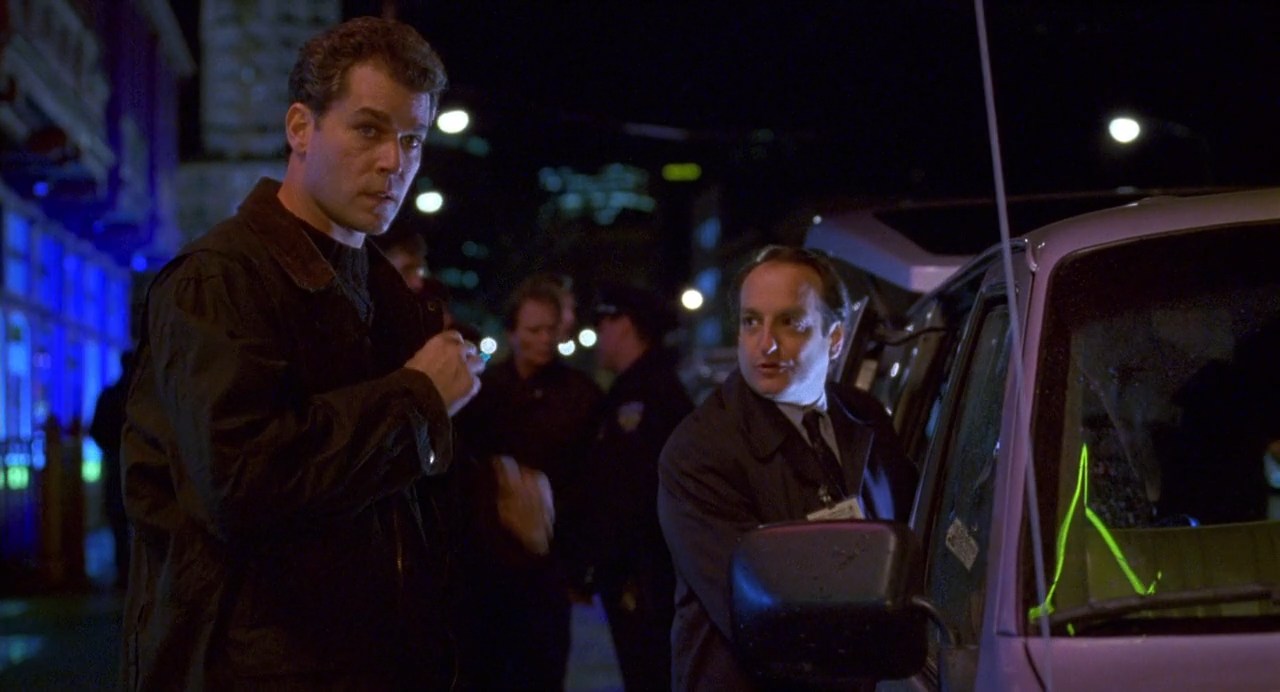
John Dahl is an unsung hero of neo-noirs of the 1990s who made great films like “Red Rock West” and “The Last Seduction.” This effort of his went more unnoticed, because it was too ambitious for its own good and critics found the whole thing very messy and at times confusing. But while it may not be a perfect film, it still is an entertaining ride. Even a fascinating one, dare I say it.
Seattle medical examiner Dr. David Krane is very interested in Martha Briggs’ research regarding transmitting memories between rats in the laboratory. Krane makes himself available as the first human test object, but Briggs refuses him due to the susceptibility to complications. In the evening, Krane secretly steals the required substance and mixes it with the cerebrospinal fluid of his murdered wife. He can now “remember” fragments of the murder, but this will only complicate things further for him.
Dahl’s style gives a lot of freedom to Ray Liotta and Linda Fiorentino – who also shines in “The Last Seduction” – to give committed performances portraying those interesting characters. Dahl’s style is not just inspired by the noirs but also seemingly borrowing some from Italian horrors as well as De Palma’s style.
6. Knife+Heart (2018)
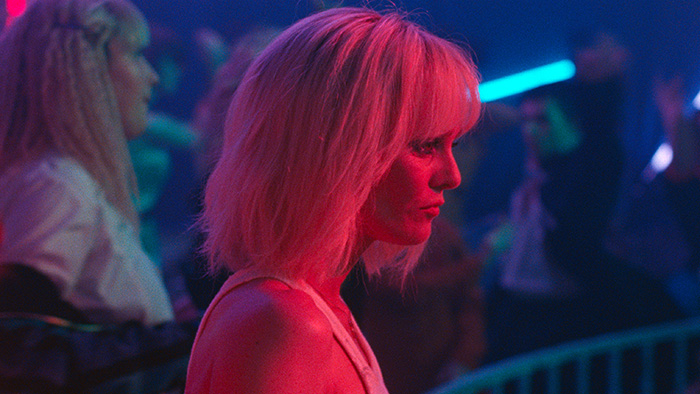
It’s been said that De Palma considered directing “Cruising” before William Friedkin took on the project. This challenging and unpredictable film feels as if he directed “Cruising” with the style of his “Phantom of the Paradise” and the same sense you get from “Dressed to Kill.” It even uses split-screen suspense sequences, which is an obvious homage to the master itself and such references make this movie a joy to watch for cinephiles. Actually, the movie would probably only appeal to cinephiles because of its trashy aesthetics – as gorgeous and stylish as they are – even alone can be enough to turn off some viewers.
Director Yann Gonzalez creates a Da Palma-ish thriller with a lot of camp. He also doesn’t forget giallo masters in his style. The plot sets in late ‘70s Paris where a producer of a third-rate gay porn tries to win her editor and lover Lois back by shooting an ambitious film, but then suddenly one of the actors gets murdered and things get out of control. Even the plot sounds like something very unusual, but the plot is not necessarily a huge aspect for this movie. It’s not some film with a lot of depth or anything. If anything, it’s more of a mood piece. Some of the elements don’t work as well as they should, but when the movie works, it really works.